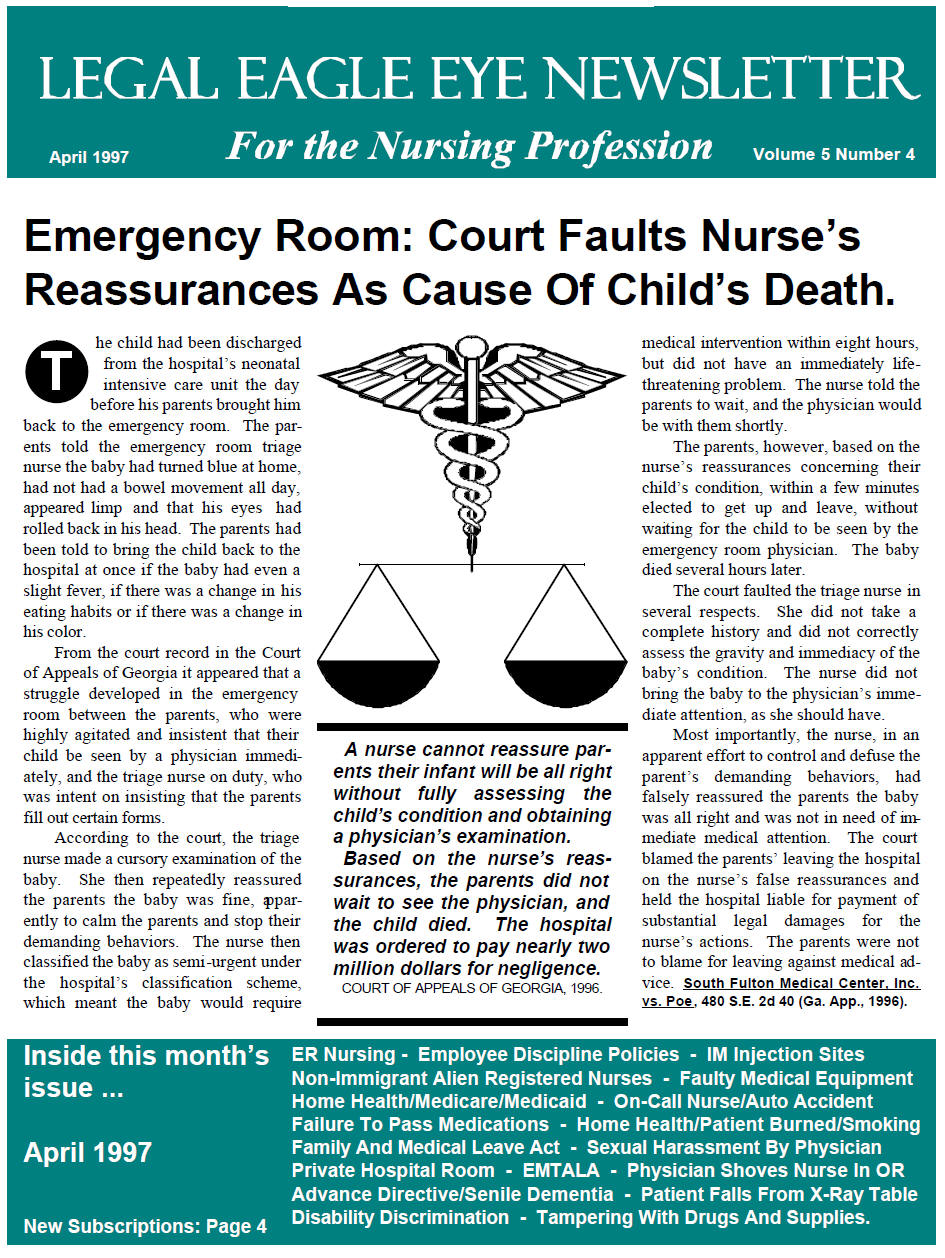
|
Click here for a complimentary copy of the current issue of Legal Eagle Eye Newsletter for the Nursing Profession |

Emergency Room: Court Faults Nurse's Reassurances As Cause Of Child's Death
Legal Eagle Eye Newsletter for the Nursing Profession
Quick Summary: A nurse cannot reassure parents their infant will be all right without fully assessing the child’s condition and obtaining a physician’s examination.
Based on the nurse’s reassurances, the parents did not wait to see the physician, and the child died. The hospital was ordered to pay nearly two million dollars for negligence.
COURT OF APPEALS OF GEORGIA, 1996.The child had been discharged from the hospital’s neonatal intensive care unit the day before his parents brought him back to the emergency room. The parents told the emergency room triage nurse the baby had turned blue at home, had not had a bowel movement all day, appeared limp and that his eyes had rolled back in his head. The parents had been told to bring the child back to the hospital at once if the baby had even a slight fever, if there was a change in his eating habits or if there was a change in his color.
From the court record in the Court of Appeals of Georgia it appeared that a struggle developed in the emergency room between the parents, who were highly agitated and insistent that their child be seen by a physician immediately, and the triage nurse on duty, who was intent on insisting that the parents fill out certain forms.
According to the court, the triage nurse made a cursory examination of the baby. She then repeatedly reassured the parents the baby was fine, apparently to calm the parents and stop their demanding behaviors. The nurse then classified the baby as semi-urgent under the hospital’s classification scheme, which meant the baby would require medical intervention within eight hours, but did not have an immediately life-threatening problem. The nurse told the parents to wait, and the physician would be with them shortly.
The parents, however, based on the nurse’s reassurances concerning their child’s condition, within a few minutes elected to get up and leave, without waiting for the child to be seen by the emergency room physician. The baby died several hours later.
The court faulted the triage nurse in several respects. She did not take a complete history and did not correctly assess the gravity and immediacy of the baby’s condition. The nurse did not bring the baby to the physician’s immediate attention, as she should have.
Most importantly, the nurse, in an apparent effort to control and defuse the parent’s demanding behaviors, had falsely reassured the parents the baby was all right and was not in need of immediate medical attention. The court blamed the parents’ leaving the hospital on the nurse’s false reassurances and held the hospital liable for payment of substantial legal damages for the nurse’s actions. The parents were not to blame for leaving against medical advice. Medical Center vs. Poe, 480 S.E. 2d 40 (Ga. App., 1996).